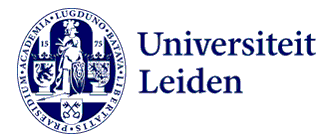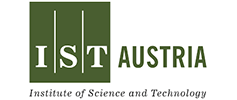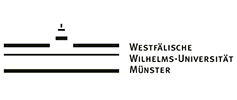Creating Rights, Terminating Rights, Overcoming Legal Conflicts
Abstract
At the heart of this paper are judges and their obligations to ensure that conflicts over fragmented rights are cured, that fundamental rights are stewarded, and that justice prevails. There are several respected legal theories that have never been examined together before, but when three of them are placed in a nexus of constitutional law, we find that these ideas support broad powers for courts to control the distribution and allocation of rights, enabling the resolution of conflicts at many social levels. First, a succession of scholars has identified the risks of ‘fragmenting rights’, of allocating overlapping rights to too many parties. The danger presented is that those rights-holders may lose the use of their legal rights or privileges; this outcome is known as the ‘Tragedy of the Anticommons’. Too many rights held by too many parties, a ‘fragmentation of rights’, can lead to a lack of access to rights and a lack of access to justice. Second, the legal theories of Nobel Laureate Ronald Coase, who found that initial allocations of rights across a community might have been allocated in a manner that frustrates negotiations and other means to avoid conflicts; but judges have an opportunity and an obligation to reset those allocations of rights to better enable society toflourish. Third, Yale constitutional scholar Robert Cover wrote that judges can and should terminate claims of overlapping rights so that the litigious parties, and society at large, can return to a more harmonious co-existence. Cover wrote that this methodology of ‘jurispathic’ judges was both an ethical and a robust means of solving Dworkin’s ‘hard cases’. This paper investigates the nexus of these three jurisprudences and what the impact of their nexus is for constitutional scholars. This paper delivers original theoretical legal findings and provides functional approaches to best enable the resolution of conflicts before courts and the maintenance of rights and privileges for all parties. This paper documents an argument that courts, especially constitutional courts, have more power to solve social conflicts and other conflicts arising from legal rules and culturesthan many constitutional law scholars may have previously assumed feasible.
Keywords
Full Text:
PDFReferences
Antonin Auguste Cournot, “Recherches sur les Principes Mathematiques de la Theorie des Richesses [Research into the Mathematical Principles of the Theory of Wealth].” Hachette, Paris,1838.
Armstrong, Jeffrey R. “Bayh-Dole under Siege: The Challenge to Federal Patent Policy as a Result of Madey v. Duke University.” Journal of College and University Law 30, no. 3 (2004).
Asay, Clark D. “Software’s Copyright Anti-commons.” Emory Law Journal 66, no. 2 (2017).
Banzhaf II., John F. “Weighted Voting Doesn’t Work: A Mathematical Analysis.” Rutgers Law Review 19, no. 2 (1965).
Bellantuono, Giuseppe. “The Regulatory Anticommons of Green Infrastructures.” European Journal of Law and Economics 37, no. 2 (2014).
Buchanan, James and Gordon Tullock. The Calculus of Consent: Logical Foundations of Constitutional Democracy. Michigan: University of Michigan Press ̧1962.
Buchanan, James and Yong J. Yoon. “Symmetric tragedies: Commons and Anticommons.” The Journal of Law and Economics 43, no. 1 (2000).
Bussey, Taylor. “You Got Too Much Dip on Your Chip! How Stagnant Copyright Law Is Stifling Creativity.” Journal of Intellectual Property Law 27 (2020).
Calabresi, Guido. “The pointlessness of Pareto: carrying Coase further.” Yale Law Journal (1991).
Canavese, Alfredo. “Commons, Anti-commons, Corruption and ‘Maffia’ Behavior.” Economics Working Paper Archive EconWPA, Law and Economics Series (2004).
Coase, Ronald Harry. “The Nature of the Firm.” Economica 4, no. 16 (1937). Coase, Ronald Harry. “The Federal Communications Commission.” The Journal of Law and Economics 2. (1959).
Coase, Ronald Harry. “The Problem of Social Cost.” Journal of Law and Economics 3 (1960).
Colangelo, Giuseppe. “Avoiding the Tragedy of The Anticommons: Collective Rights Organizations, Patent Pools and the Role of Antitrust.” LUISS Law and Economics Lab Working Paper No. IP-01-2004, 2004.
Cover, Robert M. “The Supreme Court, 1982 Term – Foreword: Nomos and Narrative.” Harvard Law Review 97 (1983).
Cover, Robert M. “The Folktales of Justice: Tales of Jurisdiction.” Capital University Law Review 14 (1985).
Cover, Robert M. “Obligation: A Jewish Jurisprudence of the Social Order.” Journal of Law and Religion 5, no. 1 (1987).
Cover, Robert M. “Obligation: A Jewish Jurisprudence of the Social Order.” Journal of Law and Religion 5, no. 1 (1987): 65-74.
Cover, Robert M. “Violence and the Word” The Yale Law Journal 95, no. 8 (1986): 1601-1629.
Dagan, Hanoch and Michael A. Heller. “The Liberal Commons.” Yale Law Journal 110 (2000).
Dari-Mattiacci, Giuseppe, Francesco Parisi. “Substituting Complements.” Journal of Competition Law and Economics 2, no. 3 (September 2006).
Depoorter, Ben & Sven Vanneste. “Putting Humpty Dumpty Back Together: Experimental Evidence of Anticommons Tragedies.” Journal Law, Economics & Policy 3 (2006).
Dworkin, Ronald. “Hard Cases.” Harvard Law Review 88, no. 6 (1975): 1057-1109. Ellet Jr, Charles. An Essay on the Laws of Trade in Reference to the Works of
Internal Improvement in the United States. New York: A. M. Kelley, 1839. Felsenthal, Dan S. and Moshé Machover. “The Majority Judgement Voting
Procedure: A Critical Evaluation.” Homo Oeconomicus 25, no. 3 (2008).
Filipe, José António. “Tourism Destinations and Local Rental: A Discussion around Bureaucracy and Anti-Commons: Algarve Case (Portugal).” International Journal of Latest Trends in Finance and Economic Sciences 4 (2014).
Fukuyama, Francis. Political Order and Political Decay: From the Industrial Revolution to the Globalization of Democracy. New York: Farrar, Straus and Giroux, 2014.
Gabriel, Marian Cosmin. “Education in the Anticommons: Evidence from Romania.” Central European Journal of Public Policy 12, no. 1 (2018).
Greer, Lee A. and David J. Bjornstad. “Licensing Complementary Patents, the Anticommons and Public Policy.” Joint Institute for Energy and Environment, Technical Report 2004-03, 2004.
Hardin, Garrett. “The Tragedy of the Commons.” Science 162, no. 3859 (1968). Heller, Michael A. “The Tragedy of the Anticommons: Property in the Transition
from Marx to Markets.” Harvard Law Review 111, no. 3 (1998).
Heller, Michael A. “The Tragedy of the Anticommons: A Concise Introduction
and Lexicon.” Modern Law Review 76, no. 1 (2013).
Heller, Michael A. and Rebecca S. Eisenberg. “Can Patents Deter Innovation? The
Anticommons in Biomedical Research.” Science 280, no. 5364 (1998): 698-701. Hertz, Gal. “Narratives of Justice: Robert Cover’s Moral Creativity.” Law and
Humanities 14, no. 1 (2020).
Hsiung, Bingyuan. “Commons, Anticommons, and in-Betweens.” European Journal
of Law and Economics 43 (2017).
Kelsen, Hans. Pure Theory of Law. California: Univ of California Press, 1967.
King, Ronald F., Ivan Major, and Cosmin Gabriel Marian. “Confusions in the Anti-commons.” Journal of Politics and Law 9, no. 7 (2016).
Kosnik, Lea-Rachel. “River Basin Water Management in the US: A Regulatory Anti-commons.” Environmental & Energy Law & Policy Journal 5 (2010).
Landry, Benjamin David. “A Tragedy of the Anticommons: The Economic Inefficiencies of Space Law.” Brooklyn Journal of International Law 38 (2013).
Lee, Jyh-An. “Copyright Divisibility and the Anti-commons.” American University International Law Review 32, no. 1 (2016).
Major, Ivan, Ronald F. King, and Cosmin Gabriel Marian. “Anticommons, the Coase Theorem and the Problem of Bundling Inefficiency.” International Journal of the Commons 10, no. 1 (2016).
McCarter, M.W., Kopelman, S., Turk, T.A., and Ybarra, C. “Too many cooks spoil the broth: Toward a theory for how the tragedy of the anticommons emerges in organizations.” Negotiation and Conflict Management Research 14, no. 2 (2021).
Michelman, Frank I. “Ethics, Economics, and the Law of Property.” Tulsa Law Review 663, no. 39 (2004): 663-690.
Mitchell, Matthew and Thomas Stratmann. “A Tragedy of the Anticommons: Local Option Taxation and Cell Phone Tax Bills.” Public Choice 165 (2015).
Mueller, Dennis C. “Voting by Veto.” Journal of Public Economics 10 (1978).
Nikulin, Dmitriĭ V. On Dialogue. Lanham: Lexington Books, 2005.
Parisi, Francesco, Norbert Schulz, and Ben Depoorter. “Simultaneous and Sequential Anti-commons.” European Journal of Law and Economics 17 (2004).
Partain, Roy Andrew. “Ecologies of Paideic Law: Environmental Law and Robert M. Coveŕs Jurisprudence of ‘Nomos and Narratives’.” Hanyang Law Review 24, no. 3 (2013).
Partain, Roy A. “Anticommons in Public International Law: Consideration of a New Approach for Legal Research.” Gachon Law Review 13, no. 1 (2020).
Penrose, L. S. “The Elementary Statistics of Majority Voting.” Journal of the Royal Statistical Society 109, no. 1. (1946).
Rottenberg, Simon. “The Baseball Players’ Labor Market.” Journal of Political Economy 64, no. 3 (1956).
Shapley, Lloyd S. “A Value for n-Person Games.” In Contributions to the Theory of Games, vol. II, edited by H. W. Kuhn and A. W. Tucker. Princeton, New Jersey: 1953.
Shapley, Lloyd S., and Martin Shubik. “A Method for Evaluating the Distribution of Power in a Committee System.” American Political Science Review 48, no. 3 (1954).
Shapiro, Fred R. and Michelle Pearse. “The Most-Cited Law Review Articles of All Time.” Michigan Law Review 110 (2012).
Shui, Bing. “China: Fragmented Rights and Tragedy of Anticommons: Evidence from China’s Coastal Waters.” Journal of Civil Law Studies 9, no. 2 (2016).
Simcoe, Timothy. “Governing the Anticommons: Institutional Design for Standard- Setting Organizations.” Innovation Policy and the Economy 14 (2014).
Snyder, Franklin G. “Nomos, Narrative, and Adjudication: Toward a Jurisgenetic Theory of Law.” William & Mary Law Review 40 (1999).
Stewart, Steven, and David J. Bjornstad. “An Experimental Investigation of Predictions and Symmetries in the Tragedies of the Commons and Anticommons.” Research Report No. JIEE 7, Joint Institute for Energy & Environment, 2002.
The Nobel Prize. “Ronald H. Coase-Facts.” Accessed on August 8th, 2022. https:// www.nobelprize.org/prizes/economic-sciences/1991/coase/facts/.
The Nobel Prize. “The Sveriges Riksbank Prize in Economic Sciences in Memory of Alfred Nobel 2009.” Accessed on August 8th, 2022. https://www.nobelprize. org/prizes/economic-sciences/2009/summary/.
Tsebelis, George. “Decision Making in Political Systems: Veto Players in Presidentialism, Parliamentarism, Multicameralism and Multipartyism.” British Journal of Political Science 25, no. 3 (1995).
Van Essen, Matt J. “Regulating the Anticommons: Insights from Public-Expenditure Theory.” Southern Economic Journal 80, no. 2 (2013).
Wang, Peng. “Tragedy of Commons in Outer Space: The Case of Space Debris.” DRAFT FOR IAC 2013, School of Law, Xi’an Jiaotong University, China, 2013.
Winter, Eyal. “Voting and Vetoing.” The American Political Science Review 90, no. 4 (1996).
Wizner, Stephen. “Repairing the World Through Law: A Reflection on Robert Cover’s Social Activism.” Law & Literature 8, no. 1 (1996).
Yoon, Yong J. “Buchanan on Increasing Returns and Anti-commons.” Constitutional Political Economy 28 (2017): 270–285.
Yuval, Fany. “Sophisticated Voting Under the Sequential Voting by Veto.” Theory and Decision 53 (2002).
DOI: https://doi.org/10.31078/consrev822
Article Metrics
Abstract view : 489 timesPDF view : 87 times
Refbacks
- There are currently no refbacks.
Copyright (c) 2022 Constitutional Review

























































